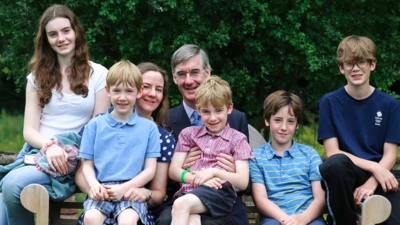We've updated our Privacy and Cookies Policy
We've made some important changes to our Privacy and Cookies Policy and we want you to know what this means for you and your data.
Portsmouth hospital baby suffered fatal spinal fracture at birth
A baby suffered a fatal spinal fracture at birth "more likely than not" because an alternative delivery method was not used, a coroner has said.
Poppy Mason was "twisted" and "pulled" by a doctor at Queen Alexandra Hospital, Portsmouth, in July 2017, the inquest heard.
She died four days later at a specialist unit in Southampton.
Consultant obstetrician Marwan Salloum said the mother refused to allow him to make a cut to free the trapped baby.
Poppy weighed 1lb 9oz (715g) when she was born in an emergency delivery on 25 July at 25 weeks' gestation, the inquest heard.
Her mother, Emma Mason, from Worthing, West Sussex, said: "My husband and mother later said they thought the force she was pulled with and twisted during the delivery, [meant] she must already be dead."
Mr Salloum said he asked Mrs Mason how to proceed during the delivery.
He said: "I lifted my head up and I said, 'I need to cut the cervix, is that all right?' and I recall Mrs Mason saying, 'No, don't.'"
A midwife in the delivery room did not remember the conversation with Mrs Mason, who was "screaming" in pain, and it was not recorded in the consultant's notes, the hearing was told.
Image source, PA Media
Mr Salloum said overriding Mrs Mason's decision would have been tantamount to assault.
Portsmouth Coroner David Horsley said it was not possible to determine precisely how the baby's injury was caused.
However, he added: "Nonetheless it's more likely than not that if the cervix had been cut the injuries wouldn't have occurred."
He recorded that Poppy died from the consequence of traumatic spinal injury.
In a statement, Mrs Mason and her husband Kevin said they were "devastated and haunted by the pain that Poppy must have felt".
Portsmouth Hospitals NHS Trust said an internal investigation had been carried out since Poppy's death and procedures of how they communicate with families have since been changed.
Top Stories
More to explore
Most read
Content is not available








